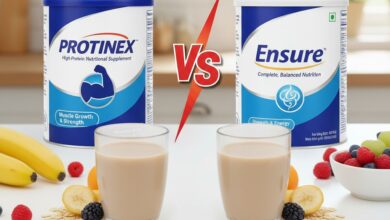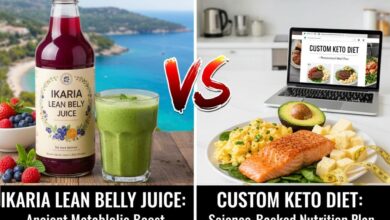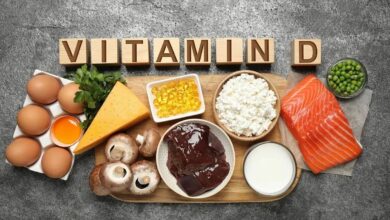Nature’s Bounty vs Schiff Probiotics : Which Supplement is Better for Gut Health 2025

If you’ve been searching for a probiotic to support digestion, gut health, or immune balance, chances are you’ve come across Nature’s Bounty Probiotics and Schiff Probiotics. Both brands are well-known, widely available, and trusted by millions of consumers. But how do they really compare? This article breaks down the differences, from ingredients and strains to effectiveness, cost, and customer feedback. By the end, you’ll know which option is the better fit for your health goals.
Disclaimer: This article is for informational purposes only. It is not medical advice. Always consult with your doctor or healthcare provider before starting any new supplement, especially if you have existing health conditions or are taking medication.
Probiotics have exploded in popularity over the past decade. From yogurt commercials to supplement aisles, everyone is talking about how these “good bacteria” can help improve digestion, balance gut health, and even support your immune system. But with so many brands on the market, choosing the right one can feel like finding a needle in a haystack.
Two names you’ll often see are Nature’s Bounty and Schiff. Both companies offer probiotic supplements with different strains, strengths, and benefits. If you’re stuck deciding between the two, you’re in the right place. Let’s dive deep into how they compare.
Read More: Treatment of Emotional and Behavioral Disorders 2025
What Are Probiotics and Why Do They Matter?
Before we jump into brand comparisons, it’s important to understand the basics. Probiotics are live microorganisms that, when consumed in the right amounts, can provide health benefits. Think of them as reinforcements for your gut’s natural army.
Your digestive system is home to trillions of bacteria. Some are helpful, others not so much. Probiotics tip the balance toward the helpful kind, promoting smoother digestion, better nutrient absorption, and a stronger immune system.
Now, not all probiotics are the same. Different strains do different jobs. That’s where choosing the right supplement becomes critical.
A Closer Look at Nature’s Bounty Probiotics
Nature’s Bounty is a well-established name in the supplement industry. They’ve been around for decades and are known for offering affordable, widely available vitamins and supplements.
Key Features
-
Offers a range of probiotic products, from basic daily formulas to specialized blends
-
Common strains include Lactobacillus acidophilus, Bifidobacterium, and plant-based probiotics.
-
Most products contain between 1 to 10 billion colony-forming units) per serving.
-
Available in capsules, chewables, and gummies
-
Typically gluten-free, dairy-free, and made without artificial flavors
Strengths
Nature’s Bounty focuses on affordability and accessibility. You can find their probiotics at major retailers like Walmart, Walgreens, Amazon, and Target. They also make it easy for beginners to try probiotics without spending a fortune.
Potential Drawbacks
Some users feel that the lower CFU counts make the supplements less potent compared to higher-end brands. Also, because Nature’s Bounty has a broad product line, it can be confusing to figure out which specific probiotic formula is right for you.
A Closer Look at Schiff Probiotics
Schiff is another big player in the supplement industry. Founded in 1936, Schiff Nutrition has built a reputation for quality. They’re best known for products like Move Free (joint support) and Airborne (immune health), but they also have a strong probiotic line.
Key Features
-
Popular products include Digestive Advantage and Schiff Probiotic Gummies
-
Many formulas feature the strain BC30 (Bacillus coagulans), which is highly resilient and survives stomach acid
-
Schiff probiotics often contain 500 million to 1 billion CFUs, but thanks to BC30’s survival rate, smaller counts can still be effective
-
Available in capsules, soft chews, and gummies
-
Focused more on targeted benefits such as digestive comfort and immune support
Strengths
Schiff is especially strong in the area of digestive health. Their patented BC30 strain is backed by clinical studies showing it survives stomach acid better than many other probiotics. This means you actually get more of the probiotic into your gut, where it can work.
Potential Drawbacks
Because Schiff often uses fewer strains and lower CFU counts, some people feel the products aren’t as “broad spectrum” as other brands. If you want a supplement with multiple strains for overall gut diversity, Schiff may not be your first choice.
Nature’s Bounty vs Schiff: Side-by-Side Comparison
| Feature | Nature’s Bounty | Schiff |
|---|---|---|
| Strains | Multiple strains (Lactobacillus, Bifidobacterium, etc.) | Mostly Bacillus coagulans (BC30) |
| CFU Count | 1 to 10 billion+ | 500 million to 1 billion (but survives stomach acid well) |
| Product Variety | Wide range (capsules, gummies, chewables, targeted formulas) | More focused on digestive and immune health gummies and capsules |
| Availability | Widely available in stores and online | Widely available in stores and online |
| Price | Generally affordable, lower price range | Moderate pricing, sometimes higher due to patented strain |
| Best For | Beginners, budget-friendly options, general gut support | Digestive issues, people who want science-backed survival of probiotics |
Effectiveness: Which Works Better?
Effectiveness depends on your personal needs. If you’re looking for a broad-spectrum probiotic to support general gut health, Nature’s Bounty may be better because it offers more strains and higher CFU counts.
But if your main concern is digestive discomfort, bloating, or gas, Schiff might be more effective thanks to its BC30 strain, which survives stomach acid better than most. A smaller dose that actually reaches your intestines can sometimes outperform a larger dose that doesn’t.
Safety and Side Effects
Both brands are generally safe for most people. Mild side effects can include temporary bloating, gas, or stomach upset when first starting probiotics. These usually go away after a few days.
Always check the label for allergens. Both brands tend to avoid common allergens like gluten and dairy, but double-check if you have sensitivities.
As always, if you’re pregnant, breastfeeding, or have a weakened immune system, check with your doctor before starting probiotics.
Pricing: Budget vs Value
Nature’s Bounty usually wins on price. Their probiotics are often a few dollars cheaper per bottle compared to Schiff’s. For people who are just dipping their toes into probiotics, this lower cost makes it less intimidating.
Schiff, while sometimes more expensive, justifies the cost with their patented BC30 strain and research backing. If you’re looking for targeted digestive support rather than just general gut health, the extra investment may be worth it.
User Experiences and Reviews
Looking at customer feedback gives us a good sense of real-world results.
-
Nature’s Bounty users often mention improved digestion, reduced bloating, and an easy-to-take formula. Negative reviews usually point to mild stomach upset or feeling like the product was too mild.
-
Schiff users commonly report relief from gas and bloating, with many swearing by Digestive Advantage for daily digestive comfort. Negative reviews sometimes mention the lower CFU count or feeling like results took time.
Who Should Choose Nature’s Bounty?
-
Beginners who want to try probiotics at a low cost
-
People looking for general gut and immune support
-
Anyone who prefers multiple strains in one supplement
-
Budget-conscious shoppers
Who Should Choose Schiff?
-
People dealing with digestive discomfort, bloating, or irregularity
-
Those who want a clinically studied strain that survives stomach acid
-
Anyone who prefers gummies or chewables for easier use
-
Consumers who value science-backed branding
Tips for Choosing the Right Probiotic
-
Identify your goal: Do you want overall gut support, or are you targeting a specific issue like bloating or constipation?
-
Look at the strain: Different strains serve different purposes. Research which strains match your needs.
-
Check CFU counts wisely: Higher isn’t always better if the bacteria can’t survive stomach acid.
-
Start slow: If you’re new to probiotics, start with a lower dose and see how your body reacts.
-
Be consistent: Probiotics aren’t magic pills. They need to be taken daily for the best results.
FAQs
Are Nature’s Bounty and Schiff probiotics vegan?
Some products are vegan, especially gummy options, but not all. Always read the label carefully if this is important to you.
Can I take probiotics every day?
Yes, most people can safely take probiotics daily. In fact, consistency is key to getting results.
How long does it take for probiotics to work?
It depends. Some people notice improvements in digestion within a few days, while others may need a few weeks of regular use.
Can I take probiotics with antibiotics?
Yes, but it’s best to take them a few hours apart. Probiotics can help restore gut bacteria after a round of antibiotics. Always confirm with your doctor.
Do higher CFU counts mean better results?
Not always. A smaller number of bacteria that survive stomach acid can be more effective than a larger number that die before reaching the intestines.
Which is better for bloating?
Schiff probiotics, especially Digestive Advantage, are often preferred for bloating thanks to the BC30 strain.
Are these probiotics safe for kids?
Both brands offer kid-friendly options, but always check age recommendations on the label and consult your pediatrician before giving probiotics to children.
Conclusion
When it comes to Nature’s Bounty vs Schiff Probiotics, the “better” choice depends on your personal needs. If you want a budget-friendly, broad-spectrum probiotic for overall health, Nature’s Bounty is a solid pick. If your main concern is digestive comfort and you want a clinically studied strain that can survive stomach acid, Schiff may be worth the extra cost.
At the end of the day, both brands are reputable, safe, and effective for many users. The best approach is to identify your goals, start with one option, and see how your body responds. Probiotics are a personal journey, and finding the right fit can make all the difference in how you feel.



